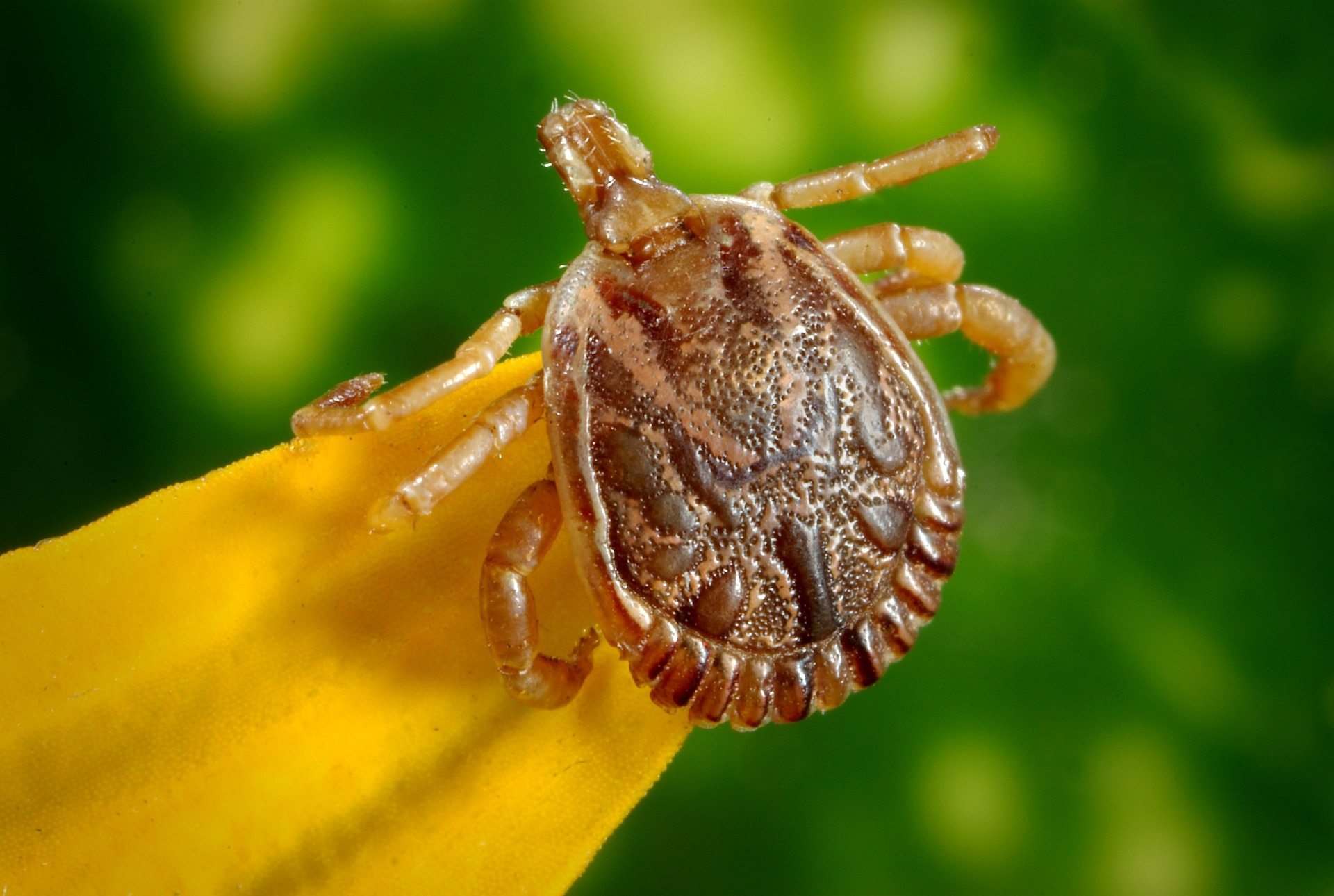Of all the pests you’re likely to encounter while camping, there are few more troublesome than the tick. Tick bites tend not to be painful but remain a health concern because certain ticks spread Lyme disease (among other blood-borne diseases). This disease affects around 300,000 people a year in the United States and can lead to a range of health problems, from a simple rash and/or flu-like symptoms to permanently disabling neurological problems, arthritis or even psychosis.
It is, therefore, a major concern that tick populations in Michigan – including several varieties that spread Lyme disease – have increased exponentially over the last five years. Various explanations have been offered for this tick explosion, none of them proven. But one thing’s for certain: the number of ticks in Michigan – and the corresponding risk of Lyme disease – is going to go way up before it goes down.
Reading up on Lyme disease symptoms can be scary, but you shouldn’t let the threat of ticks frighten you and your family away from enjoying Michigan’s wildlife. We’ve assembled ten tips to keep you and your family safe from ticks.
1. Plan ahead
When planning your camping trip you should be especially tick-aware during the warmer months – April to September – when ticks are most active. If you’re camping in a state park, pick a campsite with showers if possible (see tip #7) and call the park staff in advance, or check park websites, to check for any tick alerts and enquire about the safest places to camp.
When packing, include camping chairs (see tip #2) and a small, lightweight ‘tick kit’, including:
- Pointed tweezers
- A roll of duct tape and/or a lint roller
- Rubbing alcohol and/or antiseptic ointment.
Read on to see how these items can help you manage the threat of ticks.
2. Keep off the grass
Ticks prefer to live in moist and humid environments, such as long grass and leaf litter. Try to stick to cleared trails and walk in the center to avoid brushing against ticks.

3. Camp with care
Similarly, try to set up camp in an area that is dry, cleared rather than wooded, and sunny rather than dark. Check for piles of leaf litter before pitching your tent, and avoid contact with grass by bringing camping chairs instead of sitting on the ground.
4. Dress defensively
As far as possible without risking heat stroke, wear long clothing that covers your arms and legs. Choose light-colored clothes to keep yourself cool and make ticks easier to spot.
Ticks can crawl beneath your clothing, too, so keep everything tucked in: tuck your shirt into your pants and tuck your pants inside your socks. You could even wrap a layer of duct tape around your socks and tucked-in cuffs to keep them extra secure. Wear a hat and keep long hair covered, braided or at least tied up.
A next-level clothing hack to protect yourself from ticks is to buy clothing that has been pre-treated: see the next section for more information on tick-repellent clothing.
5. Deploy chemical weapons…
Permethrin is a tick repellent that kills ticks on contact, and you can buy clothes, boots and camping gear treated with permethrin online or from sporting goods stores. The chemical is odorless and invisible, and works for up to 70 washes. You can also buy kits to treat your clothes with permethrin yourself (don’t forget to apply to the inside of clothing in case the ticks crawl in), but this method does not last as long.
Permethrin should not be applied directly to the skin. Instead, use a repellent containing DEET (N, N-diethyl-m-toluamide). The Centers for Disease Control recommend using repellents containing 20% or more DEET – these can protect for several hours and should be reapplied regularly, following the instructions on the label. When pregnant or choosing a product for your children, speak to a pediatrician or other medical professional.
6 …or go natural
A number of alternative, ‘natural’ tick repellent products are available, usually based on essential oils. Follow the instructions carefully and speak to a medical and/or veterinary professional before relying on these products for your family.

7. Keep it clean
It can be difficult to get to a shower when you’re camping, but do so if possible: showering within two hours of being outdoors reduces your risk of contracting Lyme disease. It’s also a good opportunity to check yourself for ticks and remove them if necessary. On which note…
8. Constant vigilance!
Check your whole body – and your children, and your pets – for ticks every 2-3 hours. Use a mirror to examine your body as thoroughly as possible.
If you do spot an attached tick, remove it quickly with tweezers: you’re unlikely to contract Lyme disease unless the tick has been attached for 36-48 hours. Swab the area with rubbing alcohol and/or an antibiotic ointment.
9. Protect your pet
Lyme disease can affect dogs too. So if you’re taking your pet camping with you, make sure they wear a tick collar, keep them on a leash to prevent them running into the areas where ticks hide and check them thoroughly and often for ticks hiding among their fur.
Remember that tick repellents which are safe for humans may not be safe for dogs. Ask your veterinarian for tick prevention advice or products before you go on your trip.
10. Bring nothing home but memories…
Ticks can easily be carried into your house on your clothes, so carry out a tick-check as soon as you get home. Then tumble dry your clothes for 10 minutes on a high setting – right away, before you wash them – to kill any clinging ticks.
A camping trip with your family is something you’ll want to remember for a long time – make sure it’s for the right reasons. Take note of these tips before you load up your backpack to keep yourself, your family, and your pets safe from ticks this summer. Be sure to also know the difference between ticks and bed bugs.

